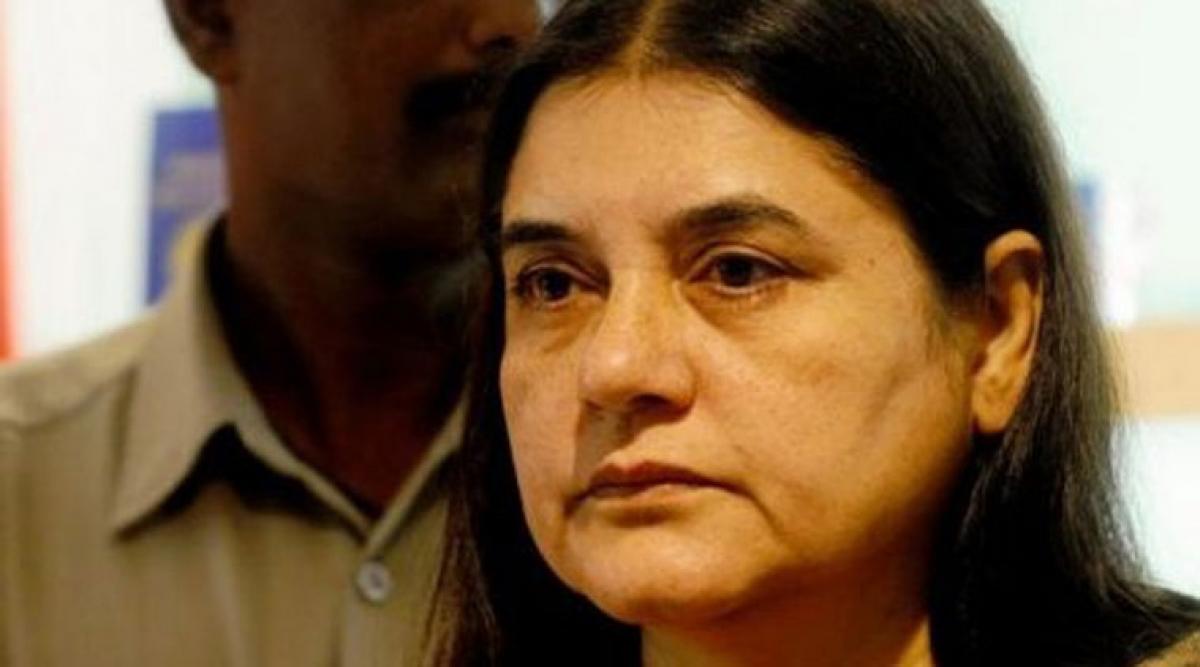Live
- Ruling parties hold sway in bypolls
- Returnable plots allotted to Amaravati farmers
- Godavari to quench Hyderabad thirst
- Nov 30 last date for submissions for Governor’s Award
- Do not collect pictures as trophies
- AP to receive rains as low Pressure in Bay of Bengal to turn depression
- Officials told to focus on popularising welfare schemes
- California’s educational escapes for families on the go
- Food poisoning deaths: Kavitha demands `10 L to students’ families
- Degree college forges exam results
Just In

x
Highlights
The draft Juvenile Justice Bill takes a far more compassionate line than has been taken by several advanced countries, according to the Minister for Women and Child Development Maneka Gandhi.
The draft Juvenile Justice Bill takes a far more compassionate line than has been taken by several advanced countries, according to the Minister for Women and Child Development Maneka Gandhi.
.jpg)
The bill seeks to lower the culpable age of a juvenile, to be tried as an adult for heinous crimes, from 18 years to 16 years. This has been criticised by activists and the opposition parties.
"They (advanced nations) have zero tolerance for violence. In most (Western) countries the age limit has gone down to 12 years, while in some states of America its 9 years. In England it is 14 years," Gandhi told IANS in an interview at her office in Shastri Bhavan.
The Bill, passed in the Lok Sabha in May 2014, has come under scathing attacks from many quarters. Gandhi said that she is prepared for constructive criticism of the Bill when it is presented in the Rajya Sabha in its monsoon session next month.
On the question of differentiating between a child and an adult, Gandhi said that the Juvenile Justice Board consisting of psychologists, lawyers and social workers was capable enough to decide on it.
“If a child of 16 is caught committing a heinous act, which is clearly defined, then he goes before Juvenile Justice Board and they will decide. If they find that the crime was committed with a childish frame of mind, no matter how serious the crime is, he will go to a children’s reform home for three years, the minister said.
Giving an example, she said that if a boy’s father had been abusing his mother and one day he (the boy) hits his father who dies, "it’s done in a child’s frame of mind".
However, if the board decides that the crime was committed in a premeditated way, he will go into the 'adult system' which means that the court will decide whether he is guilty or not. “If a boy follows a girl around for days and then rapes her, then it’s an example of a crime committed with an adult mindset,” Gandhi explained.
“If he is convicted, the juvenile will go to a borstal (a custodial institution for the young). However, after he turns 21, the Juvenile Justice Board will assess if he is reformed or not. If they find him reformed, he is out. Otherwise, he will have to serve full term (in an adult prison)," she said.
Gandhi also said that she had made an "ambitious proposal" to overhaul the National Commission for Women (NCW). “The proposal to give teeth to the NCW is an ambitious legislation. If it goes through, the commission will have as much power as the National Human Rights Commission,” she said.
However, the women’s reservation bill is yet to figure in her agenda. Describing it as a political issue, Gandhi felt that reformative action should start from the panchayati raj system to empower women and bring them into the political arena.
The Bill, which seeks to reserve one-third of all seats for women in the Lok Sabha, the Rajya Sabha and the state legislative assemblies, has been hanging fire for close to two decades.
To tackle violence against women, the ministry has initiated one-stop crisis centres, Gandhi said. Launched first in Raipur, 36 such centres are to come up across the country. The centre will have doctors, psychologists, lawyers and other experts to address women issues. She said it was now up to the chief ministers of the states to set up the centres.
She also expressed satisfaction on the progress of the prime minister’s pet ‘Beti Bachao Beti Padhao’ project in 100 select districts. “We have achieved amazing results in reducing female foeticide. In all the districts, the rate has considerably reduced. The Beti Padhao second stage will take off soon,’’ she said.

Next Story
More Stories
ADVERTISEMENT
© 2024 Hyderabad Media House Limited/The Hans India. All rights reserved. Powered by hocalwire.com







